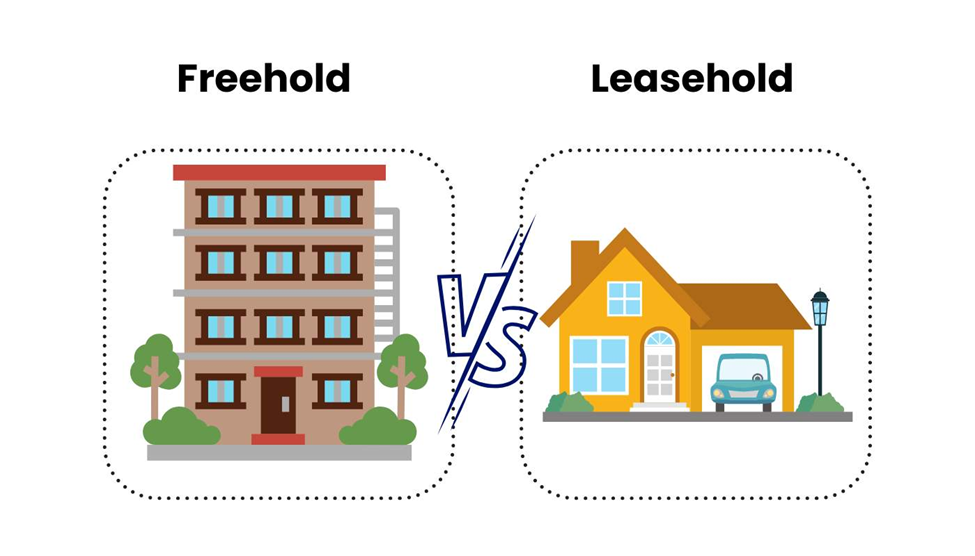
Posted on 15th February 2025
While planning to invest in property, especially buy flats in Chennai, the differences between leasehold and freehold property should be clearly understood. Each mode of ownership carries its strengths and weaknesses, and these may weigh heavily upon value and possible return on investment. In this blog, we'll examine the fundamental differences between freehold and leasehold property and their effects for those seeking to buy flats in Chennai or investing in villas in Chennai.
Freehold properties give full ownership rights over the land and the building. As a freehold owner, you can make changes, renovations, or extensions to the property without a third party needing to give approval, as long as you meet local planning guidelines. Freehold ownership is forever, and there is no limit to your tenure, so you can sell it or pass it down through generations without any restrictions based on lease periods.
•Full Ownership: You have full ownership of the land and the building, giving you maximum flexibility and control.
•Long-term Investment: Freehold properties appreciate with time, so they are a good long-term investment.
•No Periodic Charges: In contrast to leasehold homes, there are no yearly ground rents or service charges.
•Simpler Loan Availability: Freehold homes tend to have simpler loan eligibility and access to mortgages because of the unrestricted ownership.
•Increased Upfront Price: Freehold homes like buy flats in Chennai or villas in Chennai are usually more expensive to buy than leasehold alternatives.
•Sole Maintenance Responsibility: You, as the owner, have the sole responsibility for maintenance and repair expenses, which can prove to be a major financial cost.
Leasehold houses, however, imply getting the right to occupy a house for a specified time, typically between 30 and 999 years. The land continues to be owned by the lessor (most likely a housing association or local authority), and any changes are usually subject to their consent. Leasehold houses tend to have lower upfront costs but come with additional annual charges such as ground rent and service charges.
•Lower Initial Cost: Leasehold properties tend to have a lower initial cost of entry, making them more viable for individuals with limited initial capital.
•Less Maintenance Responsibility: Extensive repairs and maintenance are frequently taken care of by the freeholder, thereby lessening the financial load on the leaseholder.
•Flexibility: Leasehold arrangements may provide greater flexibility for individuals not yet prepared to make a long-term commitment.
• Limited Ownership Rights: You don't own the property, like when you buy flats in Chennai or investing in villas in Chennai. Hence you have limited control over the land under the terms of the lease.
• Decreasing Lease Value: The market value of a leasehold house may reduce with a decreasing number of years in the lease remaining, particularly below 80 years.
• Difficulty in Financing: Houses on shorter leases tend to struggle when applying for mortgages.
Which offers better value for investors?
When it comes to choosing between leasehold and freehold properties to invest in, there are a number of aspects to keep in mind:
1.Investment Objectives: If you wish for a long-term investment with total control over the property, freehold may be a better option, where you will buy a flat in Chennai or invest in villas in Chennai. But if you would prefer a lower down payment with fewer maintenance obligations, leasehold may be more desirable.
2.Fiscal Constraints: Leasehold properties are usually less expensive initially, so they are attractive to those on a limited budget.
3. Property Type and Location: Apartments in Chennai are usually leasehold, whereas independent houses or villas in Chennai could be freehold. The option relies on your property type and location preference.
4. Future Plans: Think about whether you wish to have the independence of altering or disposing of your property as you desire. Freehold properties provide greater independence in this sense.
In summary, both leasehold and freehold properties have their pros and cons, and the decision between them is based on your investment objectives, budget, and personal needs. For investors who want to purchase flats in Chennai or invest in villas in Chennai, it is important to know these differences in order to make an informed choice.
•Freehold properties are suitable for long-term investors who want full ownership and control, even though it costs more initially and requires maintenance.
•Leasehold property provides a lower entry point with fewer responsibilities in terms of maintenance but has restrictions on ownership rights and possible reductions in property value as the lease expires.
Ultimately, it must be in accordance with your personal preferences, investment strategy, and financial position towards property management and ownership. Many are keen to buy flats in Chennai or invest in villas in Chennai. Regardless of whether you choose the control and security of freehold or the affordability and flexibility of leasehold, it is important that your choice reflects your long-term aspirations for optimizing the return on your investment.
![]()
Interested in buying Stunning Flats in Chennai?
Trust S&P... We are here to help. Contact us Now